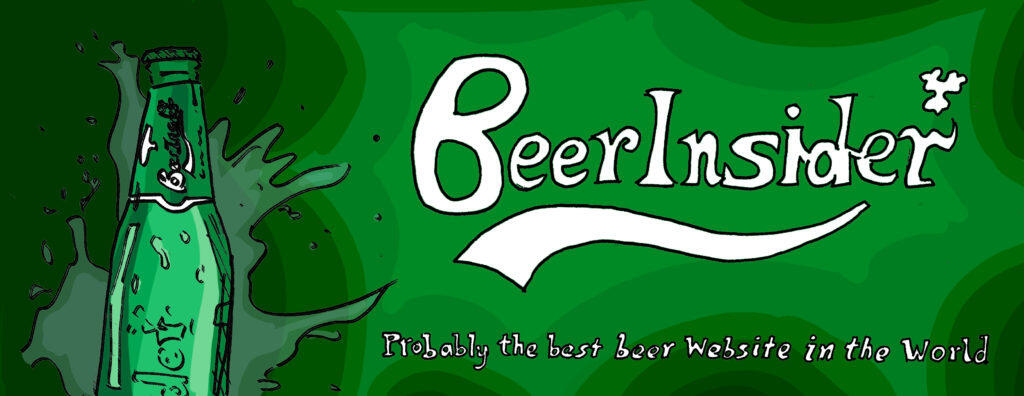Beer Travels with Adrian-Tierney-Jones
My pint of Purple Moose’s ruby-red, malt-accented Dark Side of the Moose was rich in its symphonic harmony on the palate and a perfect Bach-like counterpoint to the serene and tranquil atmosphere of The Albion Ale House on a Friday afternoon in November.
I was in a pub in the castellated town of Conwy, which is just over the river from Llandudno, where I grew up. On this benevolent afternoon I had walked from my hometown to the Albion, noting the austere, ridged, furrowed water of the River Conwy and the blank empty sockets of the medieval English castle, whilst working up a thirst and eager to sit within the pub’s venerable interior.
If you have ever visited the Albion you will know that it is a bit of an architectural time capsule, basically left alone since the 1920s when its then brewery owners (Ansells it is thought) remodelled it in the style of the times. Think art nouveau tiling in the lobby, art deco flourishes here and there and plenty of timber and red brick.
Back in 2011, the pub was closed, with a bad reputation hanging around it like an odour of corruption, somewhere that you went if you wanted a fight I was once told. However, a Conwy businessman and four local breweries (one of which is Purple Moose) got together to run the shuttered pub, which is now thriving and provides a safe harbour on this late autumnal afternoon.
The last time I had been to the Albion was in January, after a particularly gruelling visit to my mother in her nursing home, where she died a month later. Dementia was not an easy condition to deal with, especially when it had invaded and overtaken and submerged the soul of my 90-year-old parent. So after the visit, a couple of hours in the Albion on that wintery day was a balm to myself, a soothing time that might not totally erase the memory of my mother’s helplessness, but could place a calming hand on the favoured brow of recollection, just like she did when I was a child and abed with some illness or other.
You can have memories, sad ones indubitably, but unless you want to take your life in a direction marked downwards, you throw them away in the manner of a dog shaking itself after coming of the sea, which is what I have slowly but surely done since the funeral.
Now it was November and I was sitting in a room outside the main bar, watching the flames jig and shiver in the grate, weirdly reminiscent of colourful silhouettes of go-go dancers from some 1960s TV series. A lit fire in a winter’s pub is one of the greatest comforts I know. There is something elemental and hand-holding about it, a comfort and a joy and a marker for more radiance in our dark times.
A large dog across the way heard the rustle of my crisp bag being opened and sat up looking in my direction. Voices from a couple of tables drifted on several levels reminding me of itinerant shadows of smoke. No one bellowed and there was a softness about the conversations around me and the ghosts, said to be somewhere in this glorious pub, no doubt would have found themselves happy with the mellow mood of the place.
In this pub on this afternoon, in the room that was formerly the smoke room according to words engraved on the outside door’s glass pane, all doubt was left at the door and I heard a man on the next door to me, whisper to his friend, ‘I’m a jackdaw,’ he said. His friend shook his head and said that he wasn’t as he’s been born in Hendre, which was a small village on the outskirts of Conwy. Jackdaw? No, this man hadn’t drunk too much and now imagined himself to be one of our feathered friends. In Conwy if you were born within the castle’s walls then you would be called a jackdaw.
At other times I have visited the Albion I have sat in the main bar, where the conversation was a river of anecdote, jokes with the dignity of the ones found in Christmas crackers and a general sense of collaboration that was expressed with the exchanges I had with a group of regulars, who called themselves the ‘Committee’. ‘This is a talking pub, stressed one of them, whose name I think was Jim, the beer is great but it is a talking pub and you meet people from all over the world.’
The guys were jolly and loquacious, friendly and gentle, and what you would expect pub regulars to be. They were all drinking cask and they talked about Elon Musk and how come you could buy Twitter and the way the town had changed over the past couple of decades. When I asked if there were any ghosts, they chorused ‘yes’ and a man standing at the bar said that his dog once stared at something, but that there was nothing there. Then they started to drift away, some to other pubs, most of them going home.
Talking with the committee was a living example of how pubs bring people, many from different backgrounds, into a table of banter, gentle name calling, storytelling, beer drinking and of how they recall the great night when one of them drank far too much and came home from Llanrwst up the valley by way of Llandudno pier. Bless them.
Adrian Tierney-Jones




